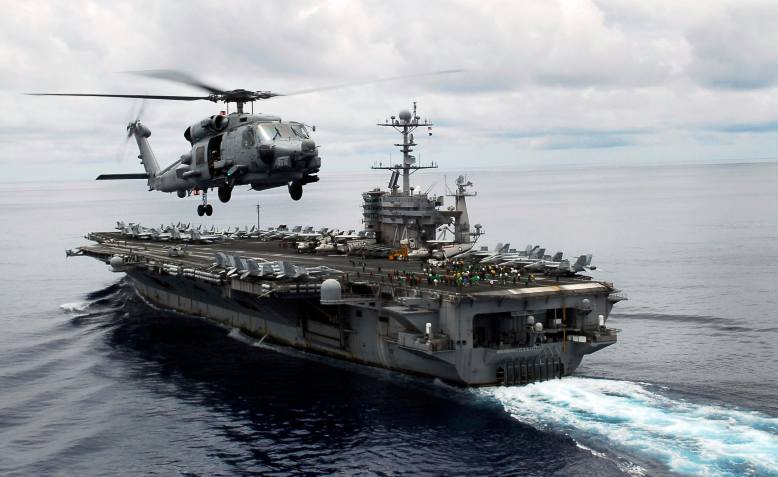 US Navy. Photo: Wikimedia Commons
US Navy. Photo: Wikimedia Commons
While thousands are dying from the pandemic, it is obscene that war machines are still grinding on, argues Lindsey German
The coronavirus crisis has created such upheaval that it has required everyone to look at society in a new way. That includes questions of war, militarism and conflict. In a time when there are huge threats to health and the safety of millions worldwide, it seems incredible that huge war machines are still grinding and that in dozens of countries people are suffering daily from the effects of conflict. That is why around a month ago, the general secretary of the United Nations called for a world ceasefire. His argument was simple: when the virus is the major threat facing humanity, then fighting the virus must entail ending war.
The head of UNICEF echoed him last week when she argued:
‘A global ceasefire would protect children from being killed, maimed or forced from their homes by conflict. It would stop the attacks on vital infrastructure like health centres and water and sanitation systems. It would open space for vulnerable populations to access essential services like healthcare; services that are key to stopping a pandemic. It would create opportunities to engage with parties to conflicts for the safe release of children from armed forces and groups.’
The different consequences of warfare highlighted here demonstrate how destructive it is not just immediately in terms of lives but in terms of destroying any possibility of ‘normal life’ – how it hits access to water, to healthcare, to safe conditions. It also has major effects on migration as the victims of war, often women and children, flee the conditions in which they find themselves.
We have become used to the existence of dozens of wars around the world at any one time. Whole countries – including Iraq, Syria, Afghanistan, Yemen and Libya – have seen their infrastructure destroyed, the lives of many wrecked through death or injury, or forced migration. The onset of neoliberalism, and the new imperialism that goes with it, has made these wars much more common and much more deadly.
A ceasefire should be the very minimum. The amounts of money spent on prolonging these wars, the billions spent on arms sales and military hardware, are not just an obscenity in themselves, but they denote priorities which downgrade spending on healthcare, sanitation, water and food supply, and basic infrastructure.
So the war-torn countries – already the scene of health and environmental problems – are also likely to be highly susceptible to the pandemic. We know this from the cholera epidemic in Yemen. Yet while there is widespread nominal support for the proposed ceasefire, many of these wars continue. They are often portrayed as being carried out by warlords and terrorists. And there certainly are plenty of those. But they are also being perpetrated by some of the richest and most powerful countries in the world.
Britain is among these. It plays a direct role in wars in a number of Middle East countries and has troops in dozens of countries at any one time. It sells arms which are used in wars – most notably to Saudi Arabia which is waging war in Yemen.
On top of arms, sanctions are a form of economic warfare, imposed by Donald Trump on countries from Iran to Venezuela, which are bringing real hardship in terms of medicine and foods – both a serious problem in times of pandemic.
A ceasefire would merely be a first step towards dealing with the problems facing some of the world’s poorest in face of coronavirus. But it would signal a change in priorities. That’s why Stop the War has started a petition to call for a ceasefire. Humanity is facing a major threat and we have to stop wars now.

